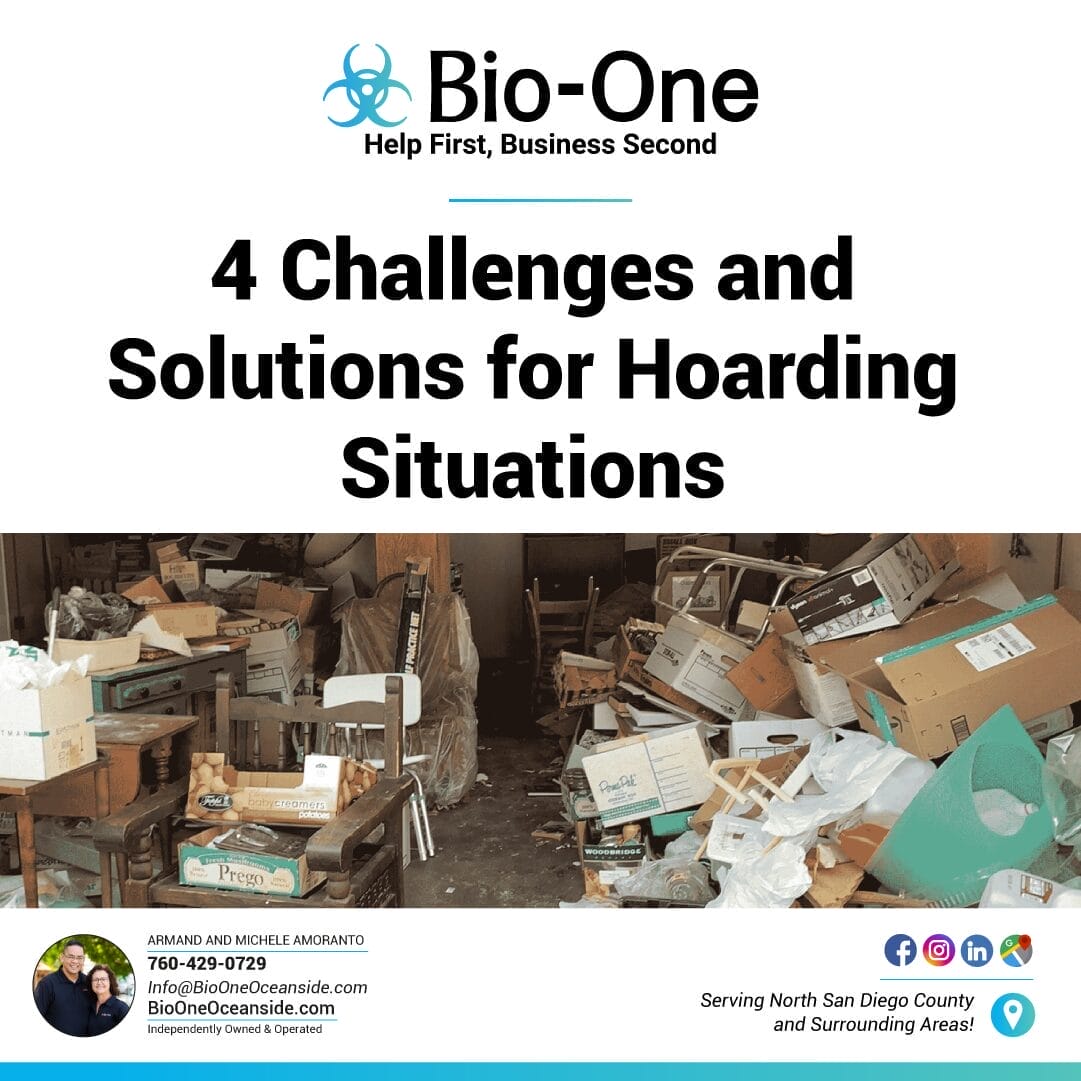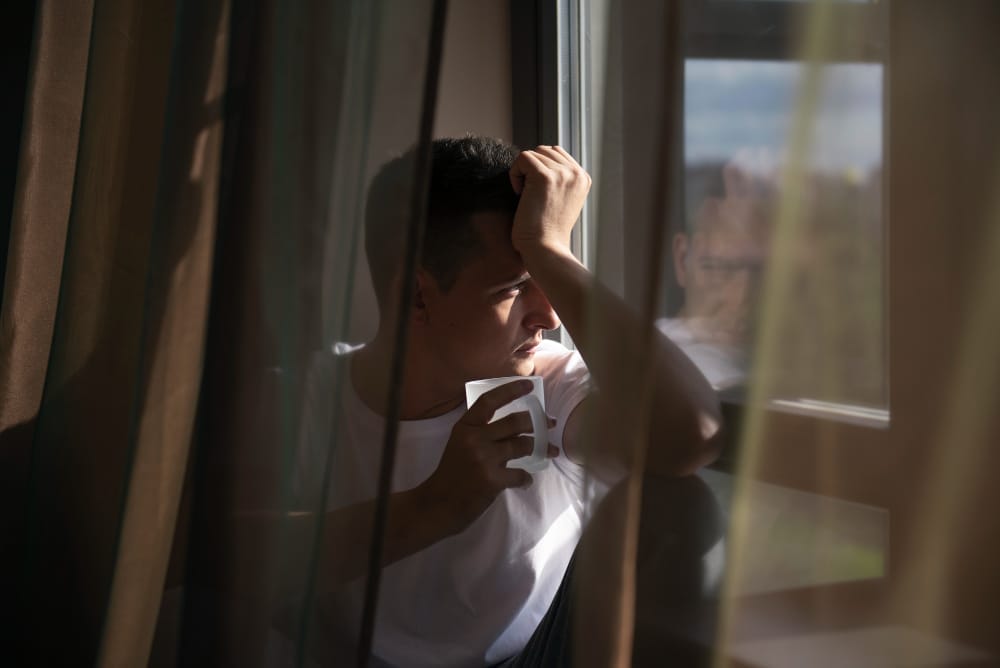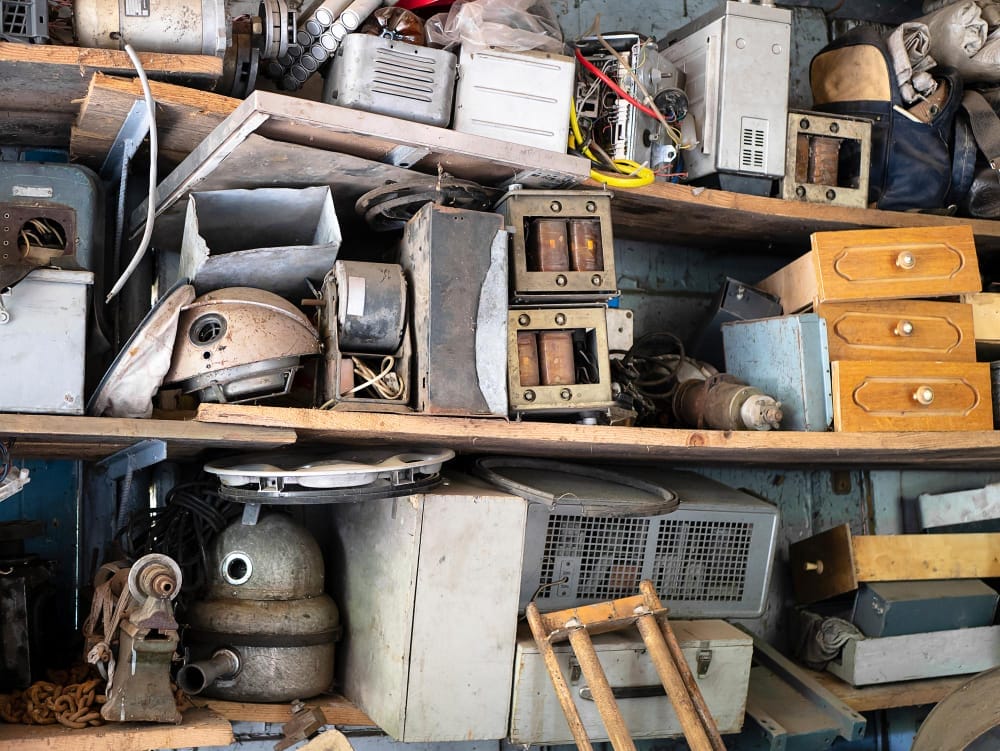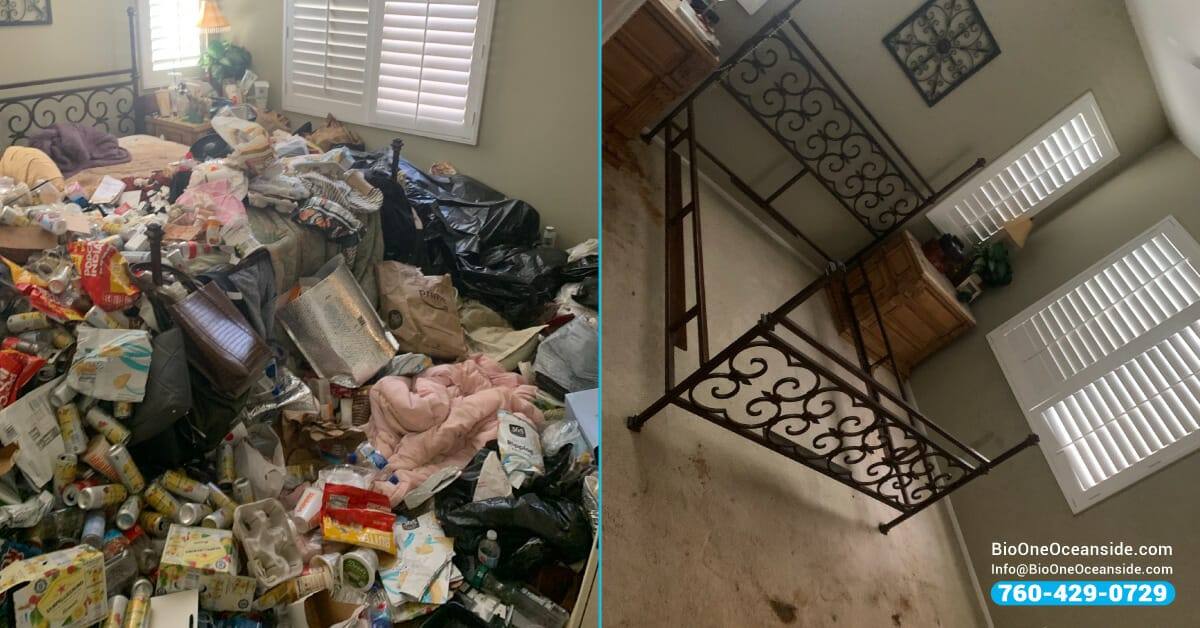
While hoarding has gradually become a more recognized mental health issue, it remains a thorny challenge for individuals and families. Navigating the emotional and practical aspects of hoarding can seem like an overwhelming task with no clear path forward. This post was conceived with the idea of providing solutions for hoarding, and a roadmap for anyone struggling with these tendencies.
Disclaimer: Please note that while this post is designed to offer guidance and support for those dealing with hoarding tendencies, it is important to remember that we are not mental health professionals. Our aim is to tackle each hoarding situation with the utmost care, compassion, and discretion, providing educational and informative content to assist in the process. For professional advice and treatment, we strongly encourage consulting with a qualified mental health expert.
Hoarding is more than just excessive accumulation; it's a mental health disorder that can significantly impair a person's ability to function. The Diagnostic and Statistical Manual of Mental Disorders (DSM-5) characterizes hoarding as a persistent difficulty in discarding possessions, regardless of their actual value.
The impact of hoarding extends beyond the physical environment. People with Hoarding Disorder often face emotional distress, which may lead to anxiety, depression, and strained relationships.
One of the core issues for those with Hoarding Disorder is an inability to make decisions about their possessions. This paralysis can stem from a variety of factors, including perfectionism, fear of making a wrong decision, and attachment to sentimental items.
Organizing a hoarder's house may seem like a simple solution, but it often fails to address the root of the issue. For hoarders, sorting through their belongings and deciding what to keep or discard is emotionally charged and overwhelming.

Hoarders often struggle with intense feelings of shame about their living conditions, typically resulting in self-imposed isolation. The stigma associated with hoarding further compounds the challenges of seeking help and maintaining social connections.
Even after a successful decluttering effort, there is a risk of relapse. Without addressing the underlying psychological factors, the hoarding behavior may return, leading to discouragement and a sense of failure.
Empowering hoarders to make decisions about their possessions is critical. Strategies such as setting small, attainable goals, categorizing items, and seeking professional help can make the decision-making process more manageable.
Developing a clear, step-by-step organizing plan is essential. This includes setting up a system for categorizing items, utilizing storage solutions, and maintaining regular cleaning routines to prevent re-accumulation of clutter.
Learn more: Tips for Helping a Loved One Dealing With Hoarding Disorder | Bio-One of Poway

Open and supportive communication with family and friends is key to overcoming the isolation that hoarders may feel. Seeking support from a therapist, support group, or professional organizer can create a safe environment to address feelings of shame and isolation.
Long-term strategies to prevent relapse involve ongoing therapy, regular monitoring of the living space, and the development of healthy coping mechanisms. It is also important to establish a support network that can offer encouragement and practical assistance. Cleaning is not the solution to hoarding.
Engaging with support groups provides a sense of community and understanding. Professional organizers can offer practical skills and an objective perspective that is often crucial in the recovery process.
Real-life examples of those who have overcome hoarding can serve as inspiration and provide insights into effective strategies for change. Success stories often highlight the importance of persistence, self-compassion, and the support of others. Here's a case from one of our first customers, whom we were to assist with a severe hoarding situation for its elderly client:
The path to recovery is unique for each person, but the common thread among successful outcomes is the willingness to seek help, develop coping skills, and build a support network. For those struggling with hoarding, remember that change is possible, and the process does not have to be faced alone.
Whether it's through a local support group or the comfort of those who understand, there are paths to a brighter, clutter-free future. We converted it all in our Bio-One of South OC blog post on how to approach hoarding: Support Groups and Resources for Those Affected by Hoarding
If you're dealing with hoarding, or know someone who is, remember that professional help is available. At Bio-One of Oceanside, we understand the delicate nature of hoarding situations and approach each case with compassion, patience, and understanding.
